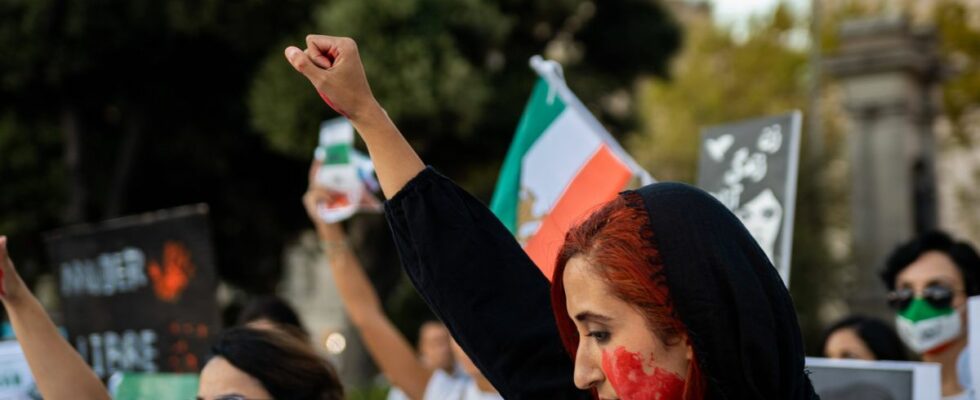Over 100 days of protests in Iran. In 2022, these revolts broke taboos and touched on the ideological foundations of the Islamic Republic, whose leaders face an implacable desire for change. The protests that erupted in mid-September following the death in police custody of 22-year-old Mahsa Aminireflect anger over economic hardship and social restrictions, analysts say.
Since its beginnings in 1979, the Islamic Republic of Iran has been regularly rocked by protests. But this movement is unprecedented in its duration and the extent of the protest in all the provinces of the country, the participation of different ethnic groups and social classes and the direct calls for an end to the regime.
The morality police abolished
Portraits of Supreme Leader Ayatollah Ali Khamenei were burned, women openly marched through the streets without headscarves and demonstrators defied security forces. Iranian authorities accuse hostile foreign powers of stoking the ‘riots’, including the United States, a sworn enemy of Tehran, but also other Western nations such as the United Kingdom or France, as well as opposition groups in exile. The culmination of the crackdown, Iran in December executed two people in connection with the protests, attracting the wrath of the international community and new sanctions.
In early December, the Attorney General of Iran announced that the morality police had been abolished. This feared unit was behind the arrest of Mahsa Amini in Tehran for violating the strict dress code imposed on women. But the prosecutor’s statement was immediately greeted with skepticism by activists, given the maintenance of the obligation for women to wear the Islamic veil in public.
There has been no “real change” and women are still being “punished in other ways”, said Shadi Sadr, founder of the London-based NGO Justice for Iran. And that did not change the main demand of the movement: “The demonstrators want the end of the Islamic Republic”, she underlined. Although their scale may have diminished in recent weeks, the demonstrations continue “every day throughout the country”, says the NGO Iran Human Rights (IHR), based in Oslo.
More than 500 people executed this year alone
The regime is unable to put an end to this popular movement and “there is no turning back”, declared Mahmood Amiry-Moghaddam, director of the IHR. NGOs accuse the authorities of committing gross human rights violations since the start of the movement, including extrajudicial executions, kidnappings abroad and the taking hostage of foreign nationals in the country.
Already at odds with Western powers over its nuclear program, Iran is also the country that executes the most people sentenced to death apart from China, notes Amnesty International. More than 500 people have been executed this year alone, details the IHR. Moreover, Iran has moved closer to Moscow since the start of the war in Ukraine at the end of February and provides cheap drones to Russian forces, while kyiv benefits from military and humanitarian aid from the West. .
“There is no turning back” possible
However, “in forty-three years of history, the Iranian regime has never seemed so vulnerable,” said Karim Sadjadpour, Iran specialist at the Carnegie Endowment for International Peace. At least 476 people have been killed by security forces since mid-September, according to the IHR. Around 14,000 people have been arrested, according to the United Nations, including several figures who supported the protest movement, such as actor Taraneh Alidoosti and rapper Toomaj Salehi, who risk the death penalty if convicted. Besides the executions of Mohsen Shekari and Majidreza Rahnavard, nine other people were sentenced to death, two of whom were granted a new trial.
For Kasra Aarabi, specialist in Iran at the Tony Blair Institute, the demonstrators think “that they are in the middle of a revolution and that there is no turning back” possible. According to him, they are inspired by several leading figures of the movement such as Hossein Ronaghi, activist for freedom of expression, and dissident Majid Tavakoli, both released after their arrest, as well as women’s rights activist Fatemeh Sepehri, who is still being held. “I’m sure we’ll win,” said human rights activist Narges Mohammadi, who was in detention before the protests even started, in a message from Tehran’s Evin prison, sent by her family. in the European Parliament.

